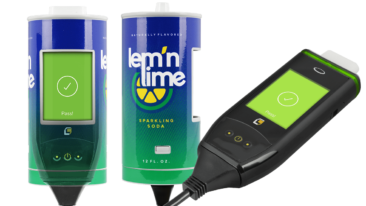
Can Mouthwash Fail an Interlock Device Test?
Have you recently been found guilty of a DUI or DWI and ordered by the local court to install an ignition interlock device in your car? If so, you likely do not want to do anything that will result in a violation of the law or extension of the device, especially if it’s something benign or accidental.
It’s important to keep in mind that devices such as the Low Cost Interlock ignition interlock are incredibly accurate, meaning they will detect even the smallest trace of alcohol. For example, it might surprise you to learn that one of the more common culprits behind surprising positive readings is mouthwash. Below, we will discuss how a car breathalyzer works and why mouthwash might cause a positive sample.
How Interlock Devices Work
Interlock devices combine two machines, a breathalyzer, and an immobilizer, and attach them to a car’s ignition system. If you have an interlock device, you will need to blow into the mouthpiece, provide a breath sample, and pass a test in order to turn on the car. This test will not allow the vehicle to start if you provide a sample that is higher than .03% blood alcohol content (BAC).
There are three common types of breathalyzers:
- Semiconductor oxide-based testers – Relatively new technology that is typically used for personal use.
- Infrared spectrometry – Tabletop devices that can be found at police stations.
- Fuel cell testers – The most accurate and portable of the methods. Fuel cells are most commonly used for interlock devices or field breathalyzers.
According to BACtrack:
“A fuel cell consists of two platinum electrodes that are partitioned by a porous acid-electrolyte material. As exhaled air passes through the fuel cell, the platinum oxidizes any alcohol present and produces acetic acid, protons, and electrons. The electrons flow through a wire from the platinum electrodes and reveal the BAC. The strength of the current corresponds to the volume of alcohol present in the sample.”
Breathalyzers evaluate the air that comes from deep in your lungs, known as alveolar air. They measure the alcohol that goes through alveoli air sacs as your blood pumps through lung vessels, and is finally exhaled as your breath. Unfortunately, as the air passes from the lungs to the mouth and into the breathalyzer, it can gather residual “mouth alcohol.” This can result in a positive reading.
What is Mouth Alcohol?
Breathalyzer machines are quite sensitive, especially since alveolar air only contains trace amounts of alcohol. However, when alcoholic beverages are consumed, some of the alcohol gets stuck:
- In the saliva
- In the teeth
- Under the tongue
Since it has been less diluted, mouth alcohol may appear in higher concentrations than that which comes from alveolar air, even though there are only small amounts still there.
Can Mouthwash Fail an Interlock Device Test?
As you likely know, most mouthwashes contain alcohol in order to help sanitize the mouth and fight bacteria. Unfortunately, some mouthwash products can have as much as 30% alcohol, which is similar to most spirits. Although alcohol in mouthwash dissipates within 15 minutes, if you were to rinse your mouth, run out to your car, and give a breath sample, the device could very well register a positive reading for alcohol and your car won’t start.
This is true of any product that contains methyl group structures such as:
- Air fresheners
- Breath sprays
- Cleaning solutions
- Colognes
- Some chocolates
- Gum
- Glue paint
- Hand sanitizer
- Inhalers
- Breath mints
- Perfumes
If you want to avoid causing an accidental positive reading on your interlock device, it may be wise to purchase a non-alcoholic mouthwash. However, if you insist on using the same mouthwash, it would be wise to rinse your mouth with water and then wait for at least 15 minutes before taking the test.
As a note, many ignition interlocks are programmed to perform a retest after 5 minutes has passed. If the first failure of the test was caused by mouth alcohol and mouthwash, the retest should no longer detect alcohol. So, if you do fail and haven’t been drinking, it is important that you take the test as soon as possible and then contact your interlock provider, notifying them of the positive reading for alcohol.
Low Cost Interlock
Low Cost Interlock has created a device that gives accurate readings in 99 out of 100 cases. Their simple blow-out method reduces the chances of picking up mouth alcohol and makes it easier to provide a sample. Although mouthwash can, in rare circumstances, cause positive readings to occur, LCI’s mission is to prevent such hassles from happening to you. Reach out today and we can help get you driving back on the road as soon as possible.
Sources:
BACtrack | The Leader in Breathalyzers. How Does a Breathalyzer Work?. Retrieved from http://www.bactrack.com/blogs/expert-center/35457349-how-does-a-breathalyzer-work
Medical Dictionary. Alveolar air. Retrieved from http://medical-dictionary.thefreedictionary.com/alveolar+air
Modell, J. National Center for Biotechnology Information. Breath alcohol values following mouthwash use. (1994). Retrieved from http://www.ncbi.nlm.nih.gov/pubmed/8254857

